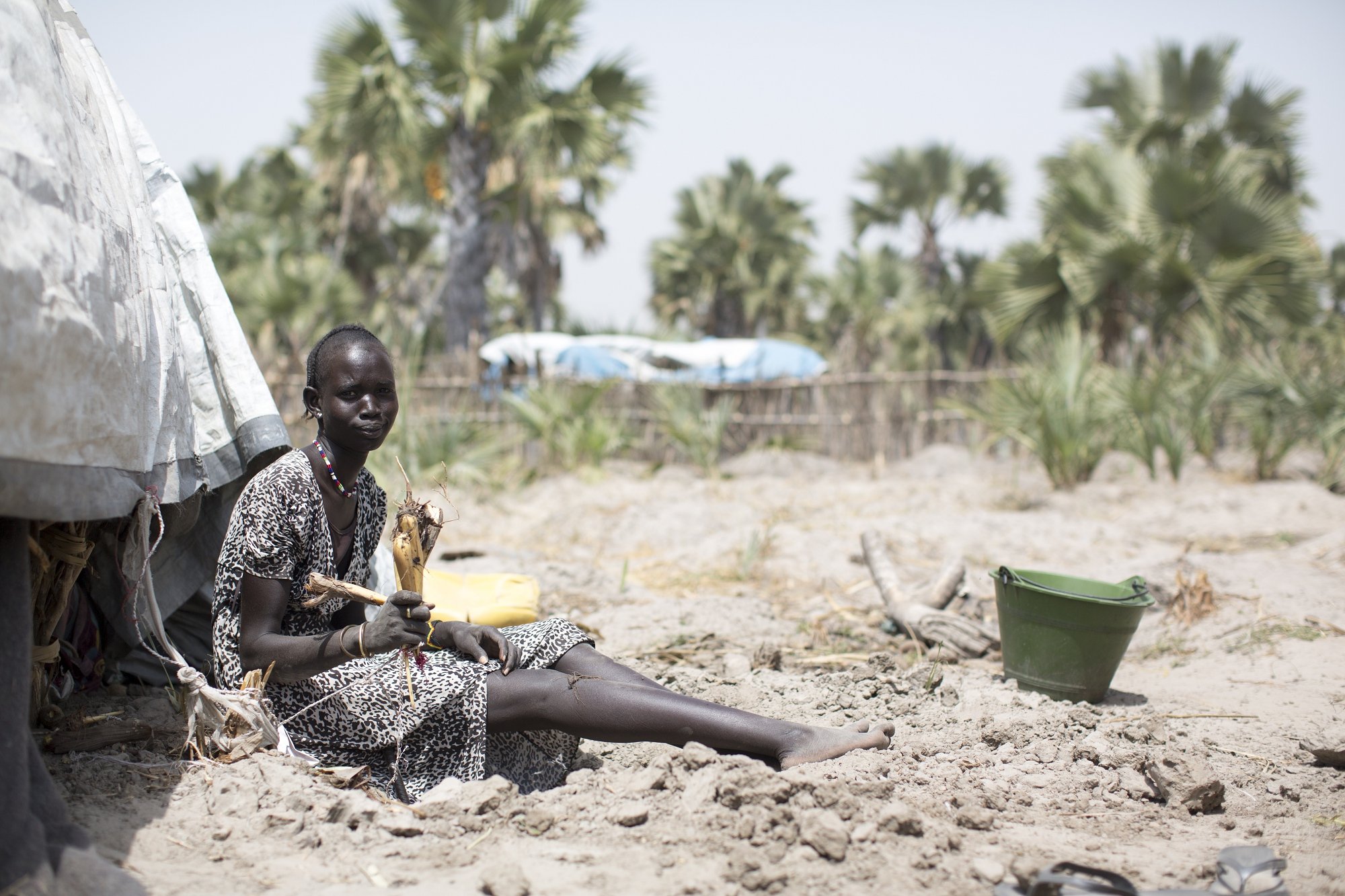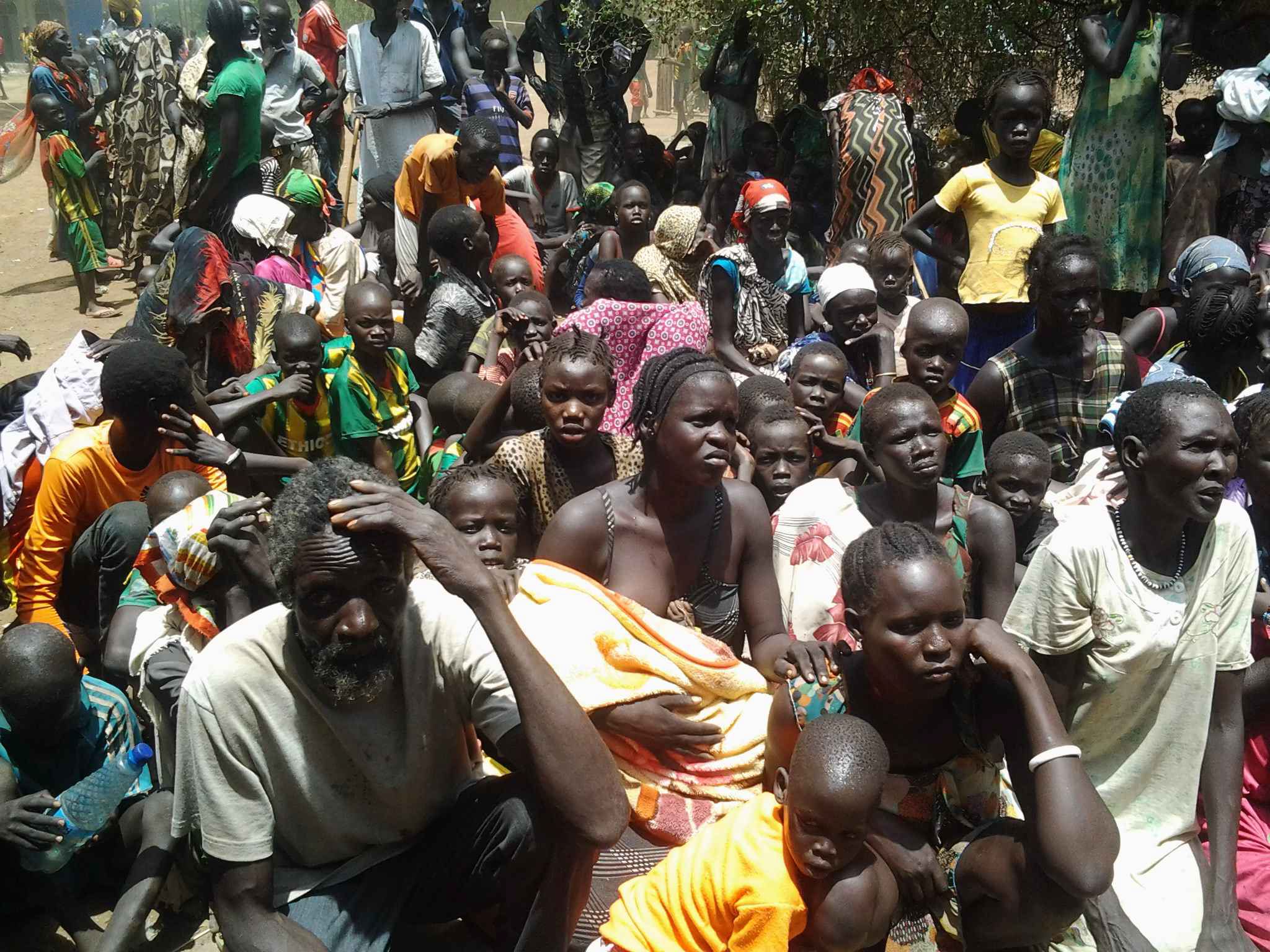South Sudan: Restoring peace between refugees and villagers in Maban County
South Sudan: Restoring peace between refugees and villagers in Maban County

YUSUF BATIL CAMP, South Sudan, March 27 (UNHCR) - Months of growing hostility between refugees in Maban County's Yusuf Batil camp and their South Sudanese neighbours over precious resources reached a head recently when gunfire and violence forced up to 8,000 refugees to flee the camp in early March.
An uneasy calm was restored after several meetings involving South Sudan's Committee on Refugee Affairs, the local authorities, UNHCR and refugee and host community leaders, allowing the displaced to return to the camp after two days sleeping beside a main road.
But more needs to be done to address the core issues - cultural differences and competition for scarce resources, including grazing land for livestock and wood and grass used to build and weatherproof homes. UNHCR is encouraging and supporting efforts to repair the rift, but the tension remains.
The first thing needed is to restore the confidence of camp residents like Fatna, a mother of five who is still troubled by the memory of the confrontation. "When we returned to the camp, I struggled to get a good night's sleep because I was afraid that the conflict would resume again," she says.
She was cooking lunch for her family in the camp of almost 40,000 people when the gunfire erupted - each side says the other was responsible - and terrified people started running past her shelter. It reminded her of fleeing her home in Sudan's Blue Nile state two years ago.
Back in the camp, she is on constant look-out for any sign of trouble and, like many other refugee women, warns her children to play close to home and within the camp perimeter.
Fatna blames the conflict on men of both communities for their inability to resolve differences or reach a compromise for everyone's sake. She longs for a return to the time when women in both communities visited each other. "If there was a marriage or death in the host community, we supported them and they did the same for us," she says. "We sold and bartered goods with each other and really lived in harmony. Now all that has changed."
Trouble had been brewing for some time. The host community accused the refugees of ignoring their rules on the use of natural resources. The refugees, in turn, said the locals treated them unfairly and charged unofficial taxes for cutting tracts of grass and wood. They also traded allegations and counter allegations of livestock theft.
Conflict resolution efforts began the day after the exodus of refugees on March 4. Officials of the Committee on Refugee Affairs and UNHCR met host community leaders and refugees representatives while police reinforcements were deployed to the area to keep the peace and allow for the return of the refugees.
Both sides had suffered, and UNHCR is assessing the damage to property belonging to refugees and host community members, some of whom went into hiding for fear of retribution. The agency has started distributing aid items such as plastic sheeting, blankets, mosquito nets, kitchen sets and sleeping mats to affected families and individuals from both communities.
"We have also appealed to our NGO partners to support the host communities with water and sanitation facilities, mobile health services and shelter material, before the rains begin," said Adan Ilmi, head of UNHCR's sub-office in Bunj, Maban County.
Encouraged by these outside efforts to resolve their differences, the affected communities have since rallied around to support initiatives to bring about tolerance and reconciliation. More than 20 host community leaders, at a recent meeting with UNHCR and refugee representatives from the Yusuf Batil and Gendrassa camps, offered an olive branch by expressing their readiness to heal the rift.
More than 50 members of the host community, including elders, chieftains, woman and youth, met with UNHCR and the Committee on Refugee Affairs (CRA) to discuss ways to achieve a rapprochement and harmony. They asked the government, through the CRA, to lead a process to stabilize and resolve conflict through traditional resolution mechanisms. They, in turn, will support efforts to ensure lasting peace through consultation and dialogue.
The communities have also asked that the early March incident be investigated and that suspects for starting the violence, which left two people dead, be brought to justice. Lastly, the host community has appealed to the CRA to propose and implement measures to preserve and protect the environment, vegetation and natural resources from indiscriminate harvesting and overuse.
"In turn, refugees have undertaken to respect the culture and traditions of the host community including the laws and institutions governing the country and are supporting the establishment of joint committees between the two communities to proactively address and resolve issues," says UNHCR's Ilmi.
With progress made in devising solutions to the problems affecting refugees and their hosts, the implementation of these recommendations are expected to chart the way forward to restore peaceful coexistence between the two communities in Maban.
For Fatna, this is good news. "I truly hope that everyone commits to the recommendations and resolutions made to restore harmony between refugees and the Mabanese, otherwise these problems will continue to destroy who we are and what little we have."
By Pumla Rulashe in Yusuf Batil Camp, South Sudan








